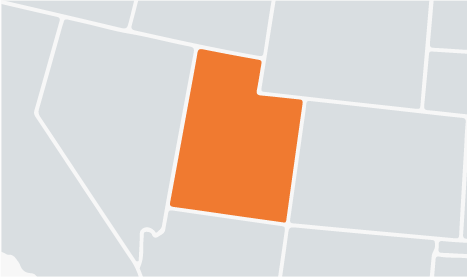NOTE: On May 23, 2023 Utah signficantly improved its anti-SLAPP statute. Read more about how that affects Utah’s score here.
| Subgrades | |
| Covered Speech: | F |
| Anti-SLAPP Procedures: | C- |
| Subscores | |
| Covered Speech: | 7 out of 100 points |
| Anti-SLAPP Procedures: | 53 out of 100 points |
| Detailed Scoring on Anti-SLAPP Procedures | |
| Suspension of Court Proceedings Upon an Anti-SLAPP Motion: | 18 of 20 points |
| Burden of Proof on Plaintiff to Defeat an Anti-SLAPP Motion: | 0 of 12 points |
| Right to an Immediate Appeal: | 25 of 25 points |
| Award of Costs and Attorney Fees: | 10 of 40 points |
| Expansive Statutory Interpretation Instruction to Courts: | 0 of 3 points |
How to Improve Utah’s Score
The most important part of anti-SLAPP law is the scope of speech that the statute covers. After all, strong statutory procedural protections are of no help to a speaker if the scope of the statute excludes the speech at issue.
The fundamental flaw in Utah’s anti-SLAPP statute is it covers too little speech. If Utah simply expanded the scope of its statute to cover the same kinds of speech recommended by the Uniform Law Commission’s model Act, the overall grade would rise to B+.
The Uniform Law Commission’s model law protects any speech about a matter of public importance in any forum. The model is described at some length in the full report and is available here.
Unfortunately, Utah also gives the court the option, not the requirement, of awarding reasonable attorney fees and court costs to prevailing defendants.
A mandatory fee-shifting provision would make it more likely that a defendant with limited financial resources who faces a SLAPP will be represented by an attorney. The prospect of fee-shifting encourages attorneys to provide such defendants with representation – especially when defendants face weak or frivolous claims.
The best anti-SLAPP laws enable defendants to recoup the money they spent on legal costs. Requiring payment of reasonable attorney fees and court costs to prevailing speakers would provide deterrent effects against strategic lawsuits of dubious merit.
Finally, the Uniform Law Commission’s model law and most anti-SLAPP laws put the burden of proof on the plaintiff to show a prima facie case. However, Utah’s law does not contain this feature. That is a serious deficiency in the statute.
State Anti-SLAPP Statute
Utah’s anti-SLAPP statute[1] protects a defendant against an action that “is primarily based on, relates to, or is in response to an act of the defendant while participating in the process of government and is done primarily to harass the defendant.” Utah case law suggests that its anti-SLAPP statute does not apply to political speech that seeks to influence voters in a future election.[2] Although discovery is stayed once an anti-SLAPP motion is filed, a court may nonetheless order otherwise. Unlike many anti-SLAPP statutes, the Utah statute forces the movant to bear a relatively heavy burden in order to prevail: the movant must show by clear and convincing evidence that the primary reason for the filing of the complaint was to interfere with First Amendment rights of the defendant. If the court denies the anti-SLAPP motion, the movant has the right to file an interlocutory appeal; if the court fails to rule on the anti-SLAPP motion in an expedited fashion, the movant also has the right to an interlocutory appeal. The statute allows the movant to maintain an action for costs and attorney fees if it is demonstrated that the action was commenced or continued without a substantial basis in fact and law and could not be supported by a substantial argument for the extension, modification, or reversal of existing law.
[1] Utah Code § 78B-6-1401 through § 78B-6-1405.
[2] Jacob v. Bezzant, 2009 UT 37, 212 P.3d 535 (Utah June 16, 2009).












